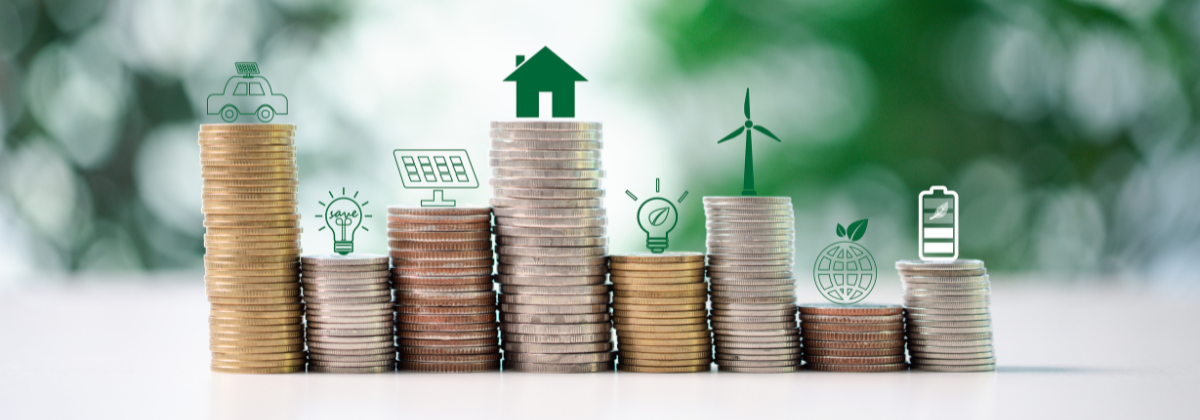As Australians prepare to vote in the 2025 Federal Election this Saturday, the policies of each political party will be under close scrutiny, including energy.
Energy, and how much we pay for it, has been a key focus for both Labor and the Coalition in this election, with both parties offering policies they believe will bring the cost of energy bills down both in the short and long term.
Whether you’re across the details, or still not sure what it all means, we’ve provided a summary of the energy policies below.
The policies that could make an impact to your electricity bills in the short term
| Labor energy policies | ||
|---|---|---|
| Policy | What is it? | Who does it impact? |
| Energy rebate relief | An extension of the rebate relief that started in July 2024. Starting July 1, 2025, it will equate to an additional $150 off energy bills, with $75 each quarter in July and September. | All households with energy bills. |
| Home battery subsidy | Installed solar batteries, which store unused energy generated by solar panels, will have a 30% discount applied. | Households with solar panels (one third of Australian homes) that want to install a battery. |
How do more solar batteries keep energy bills down?
Households that have solar panels are able to have energy generated, and those that have solar batteries can then store the unused energy for use when there is no solar generation (at night) or when the energy grid is down.
The more that households are using the energy they store in their batteries, the less demand there is on the energy grid. With less demand to the grid, the pressure that retailers have to keep it powered reduces, which ultimately means the cost to supply is reduced.
This leads to a reduction in the price energy is bought for, and ultimately, supplied by, to households, reducing the total cost of energy bills.
Advertisement
Labor vs Coalition energy policy?
| Coalition energy policies | ||
|---|---|---|
| Policy | What is it? | Who does it impact? |
| National gas plan | A change to how gas is exported, including making sure some is reserved specifically for Australia which will have a knock-on effect on electricity prices – with an estimated drop in gas bills by 7% and electricity bills by 3%. | Every household that has an electricity bill. For the average household in Sydney, that would roughly translate to a $50 drop in annual electricity bills. |
| Energy bill relief extension | The Coalition has stated that it will match the proposed extension of the rebate relief Labor has promised. | All households with energy bills. |
Why does the cost of gas impact your electricity bill?
Even if you don’t use gas, the price that it is sold for on Australia’s National Energy Market (NEM) will impact your energy bill.
This is because the price your energy retailer pays for energy from the NEM is determined by the highest price being offered from generators (who produce and then sell energy) – regardless of what they actually buy. These generators will also be producing gas, which is the most expensive form of energy to generate.
Because of how the current system works in Australia, the price international markets are willing to pay for Australian gas will be the same prices that Australian retailers pay. High demand for Australian gas from international buyers, increases the price everyone must pay for it.
By making sure more gas is reserved for Australia, and therefore making it cheaper to supply to Australian retailers, the total wholesale price of energy should come down, which means your retailer will have to pay less for the energy it supplies you.
The policies that are focused on delivering long-term sustainability to the energy grid
| Labor energy policy: renewables | ||
|---|---|---|
| What is it? | A plan to have 82% of Australia’s energy grid operating from renewable energy (which includes wind, solar and hydro) by 2030. The current energy grid is made up of roughly 40% renewable energy, the plan to meet Labor’s goal has been set out by the Australian Energy Market Operator (AEMO) which will see:
|
|
| What to keep in mind |
|
|
| Coalition energy policy: nuclear | |
|---|---|
| What is it? | A plan to build seven nuclear power plants around the country, replacing current or formerly operated coal-fired power plants. These plants will then deliver energy to the grid through nuclear reactors that will generate electricity. If the Coalition wins and this policy is put in action, the first reactor won’t be expected to be up and running by at least the mid 2030s, with the expectation that all seven reactors won’t be active until 2050. The total cost to build these reactors is $120 billion (per Coalition forecasts). |
| What to keep in mind |
|
You can get relief in your energy bills now
While the Federal Election does mean decisions on how your energy bill could change in the long term, if you’re keen to get relief in your budget the best thing you can do is choose to switch and save on your energy plan.
Research from Canstar Blue shows that a household in Brisbane could save up to $453 a year by switching from the average priced plan on their distribution network to the cheapest.
| Potential savings switching from average cost plan to cheapest cost plan | ||||
|---|---|---|---|---|
| City | Distributor | Average cost | Cheapest cost | Difference |
| Sydney | Ausgrid | $1,656 | $1,299 | -$357 |
| Melbourne | Citipower | $1,336 | $1,036 | -$300 |
| Brisbane | Energex | $1,919 | $1,466 | -$453 |
| Adelaide | SA Power Networks | $2,146 | $1,747 | -$399 |
| Canberra | Evoenergy | $2,293 | $1,848 | -$445 |
| Hobart | TasNetworks | $1,269 | $1,130 | -$139 |
| Source: www.canstarblue.com.au – 29/04/2025. Based on single rate electricity plans on Canstar’s database; excluding solar-only plans. One product shown per distribution network. Annual costs calculated based on the estimated lowest possible price a representative customer would be charged in a year, assuming all conditions of discount offered (if any) have been met. Representative customer based on the reference usage for NSW, VIC, QLD, ACT, and SA (per Victorian default offer for VIC, ICRC for ACT, and AER for others) or the median usage in the Office of the Tasmania Regulator’s report, Typical Electricity Customers in Tasmania 2022 for TAS. | ||||
Compare energy plans below
Here are some of the cheapest published deals from the retailers on our database that include a link to the retailer’s website for further details. These are products from referral partners†. These costs are based on the Ausgrid network in Sydney but prices may vary depending on your circumstances. This comparison assumes general energy usage of 3900kWh/year for a residential customer on a single rate tariff. Please use our comparison tool for a specific comparison in your area. Our database may not cover all deals in your area. As always, check all details of any plan directly with the retailer before making a purchase decision.
Here are some of the cheapest published deals from the retailers on our database that include a link to the retailer’s website for further details. These are products from referral partners†. These costs are based on the Citipower network in Melbourne but prices may vary depending on your circumstances. This comparison assumes general energy usage of 4000kWh/year for a residential customer on a single rate tariff. Please use our comparison tool for a specific comparison in your area. Our database may not cover all deals in your area. As always, check all details of any plan directly with the retailer before making a purchase decision.
Here are some of the cheapest published deals from the retailers on our database that include a link to the retailer’s website for further details. These are products from referral partners†. These costs are based on the Energex network in Brisbane but prices may vary depending on your circumstances. This comparison assumes general energy usage of 4600kWh/year for a residential customer on a single rate tariff. Please use our comparison tool for a specific comparison in your area. Our database may not cover all deals in your area. As always, check all details of any plan directly with the retailer before making a purchase decision.
Here are some of the cheapest published deals from the retailers on our database that include a link to the retailer’s website for further details. These are products from referral partners†. These costs are based on the SA Power network in Adelaide but prices may vary depending on your circumstances. This comparison assumes general energy usage of 4000kWh/year for a residential customer on a single rate tariff. Please use our comparison tool for a specific comparison in your area. Our database may not cover all deals in your area. As always, check all details of any plan directly with the retailer before making a purchase decision.



Share this article